Hello Stellaris Community!
We’re proud to announce that the 3.6 “Orion” update will be released on November 29th!
Want to know exactly what this free Custodian patch contains? Well look no further! We’ve compiled most of the major changes and new features here for your convenience.
The 3.6 “Orion” update contains new galaxy shapes, new artwork as well as the ability for Hive Minds to choose a variation on the Reanimators Civic from the Necroids Species Pack, and a Fleet Combat Rebalance—including a new ship type and changes to combat computers. In 3.6, we’ve also reworked how the Ascension Paths from Utopia work, as well as added a new ascension path. We’ve also added a new Spiritualist Federation type to the specialized federation types from Federations, and added a new “Politics” tradition tree, which also requires Federations. We’ve also added new Orbital Ring buildings, which are included with the Overlord expansion. For base-game changes, we’ve added a new relic, accessibility improvements, new first contact events, included terraforming candidates on the galaxy map, added a new event chain, and tweaked some empire modifiers.
This is only a partial list of changes and new features. For the full list of bug fixes, new features, and other changes, please see the patch notes on the Stellaris forums.
And don’t forget, Stellaris and selected DLCs are on sale until November 29th! Check out the full list of discounts here!
In the 3.6 “Orion” Update, we’ve added several new galaxy shapes to galaxy generation, many of these galaxy shapes were inspired by actual shapes of galaxies out in the universe, while others are interesting galaxy shapes that we thought would be fun to play on.
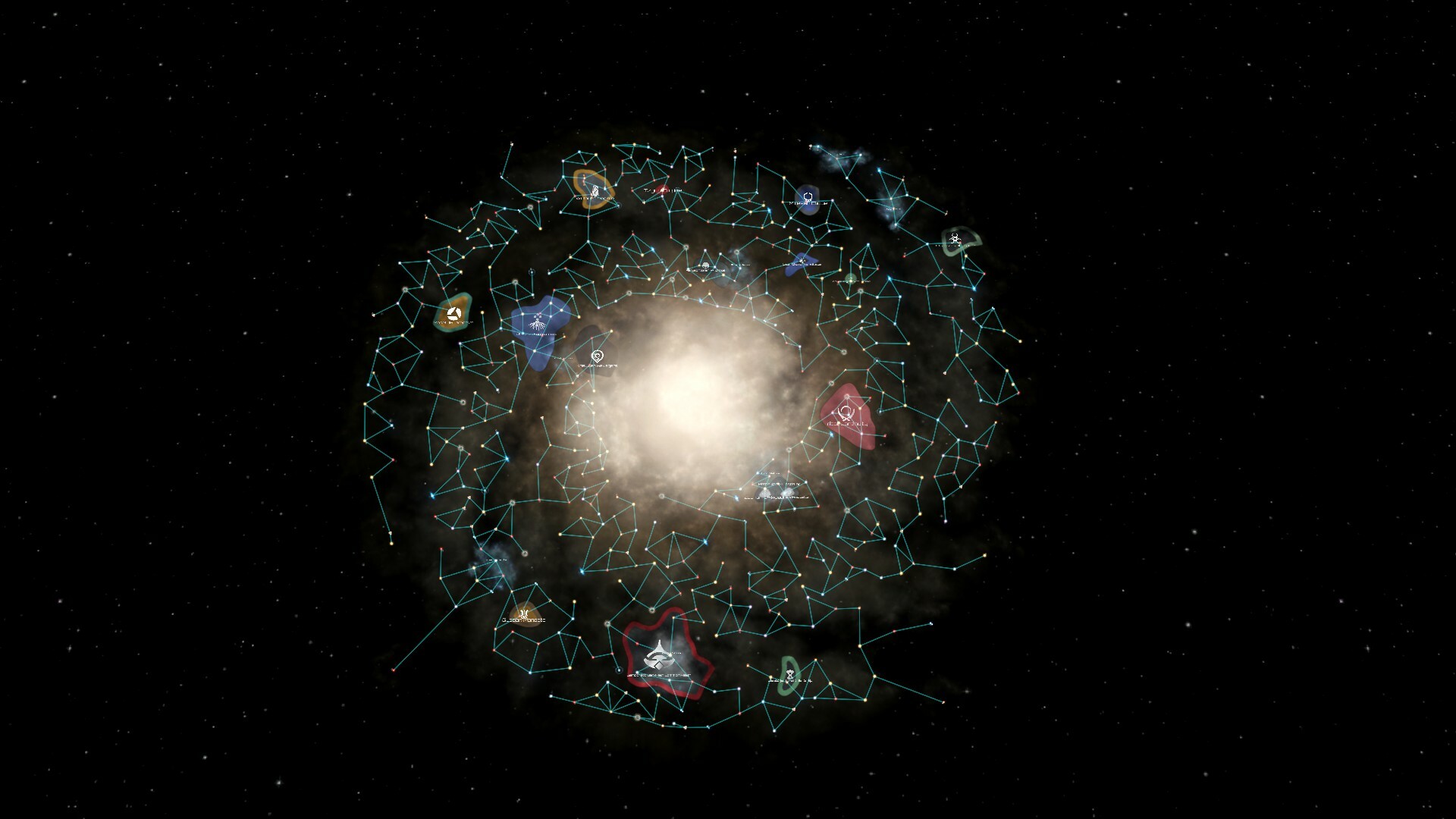
3 Arm Spiral Galaxy
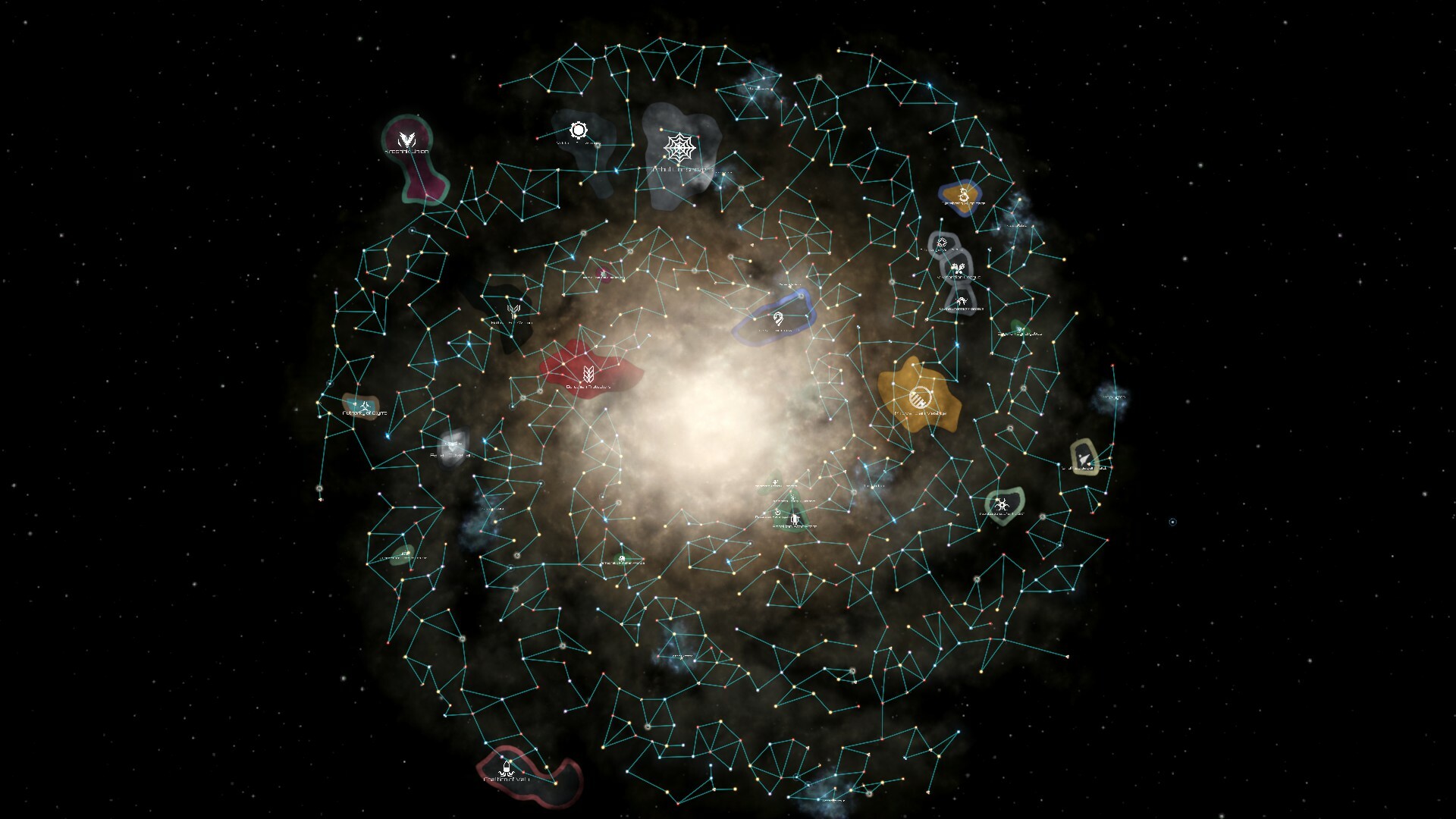
6 Arm Spiral Galaxy
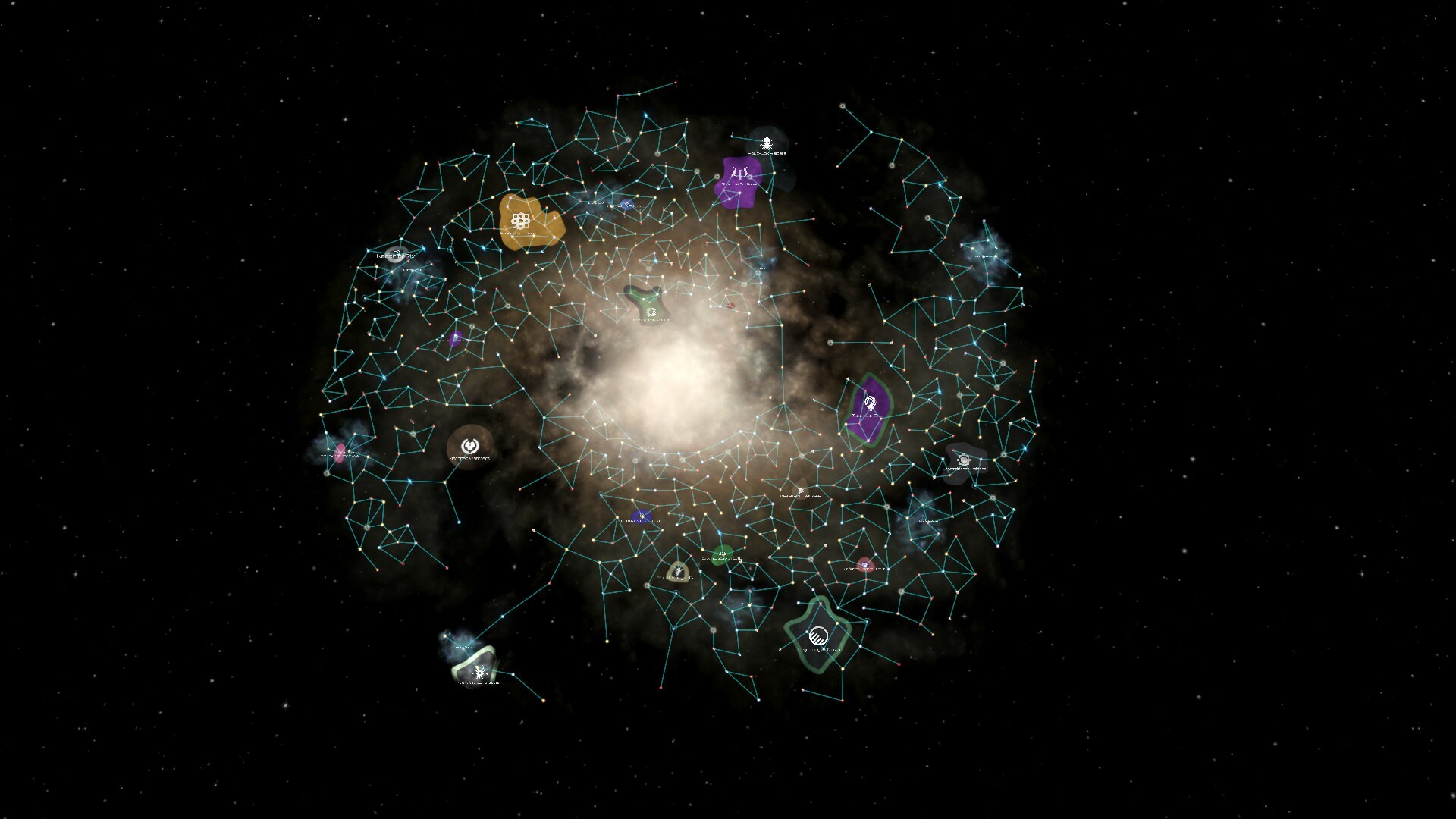
Barred Galaxy
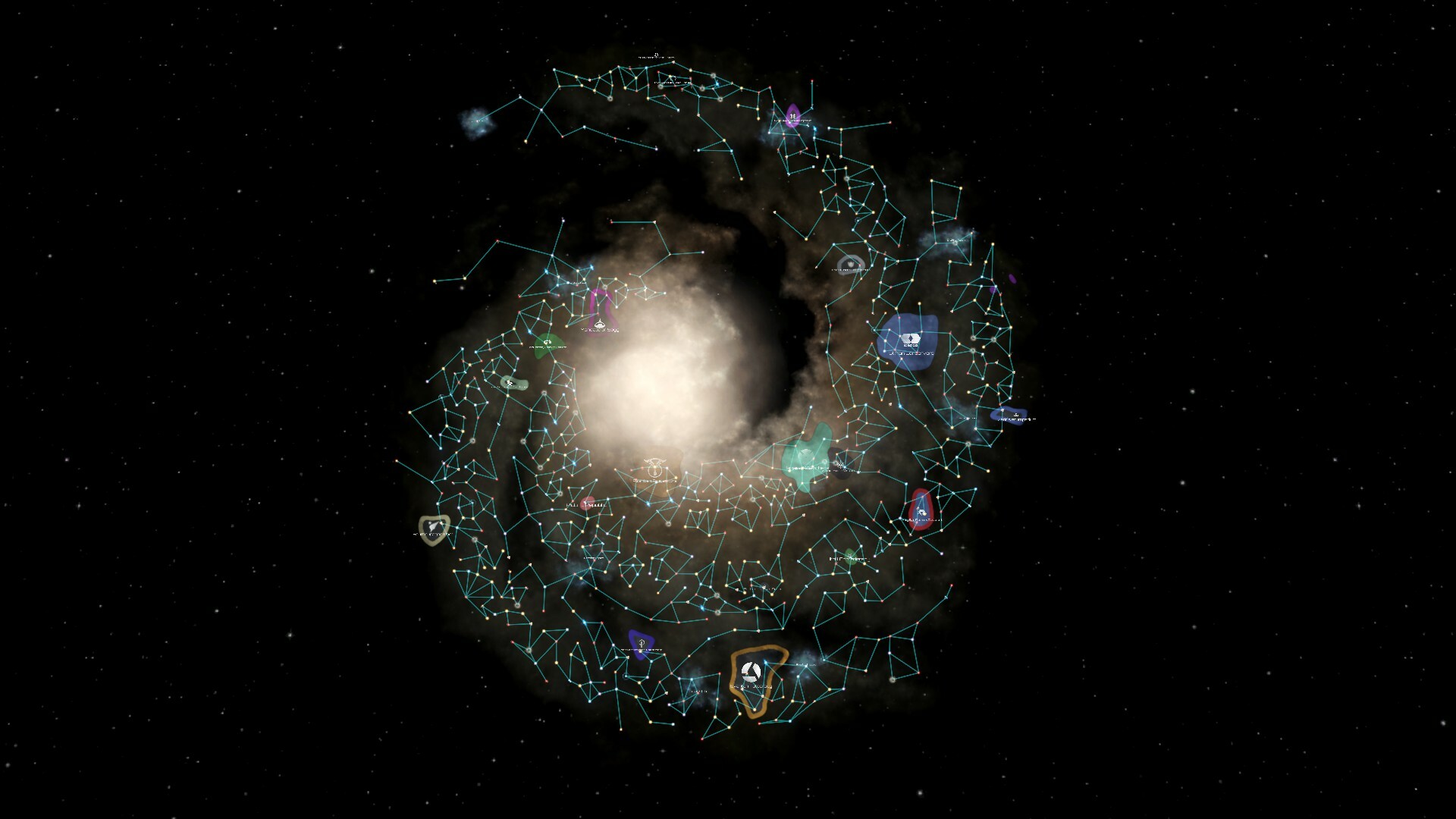
Starburst Galaxy
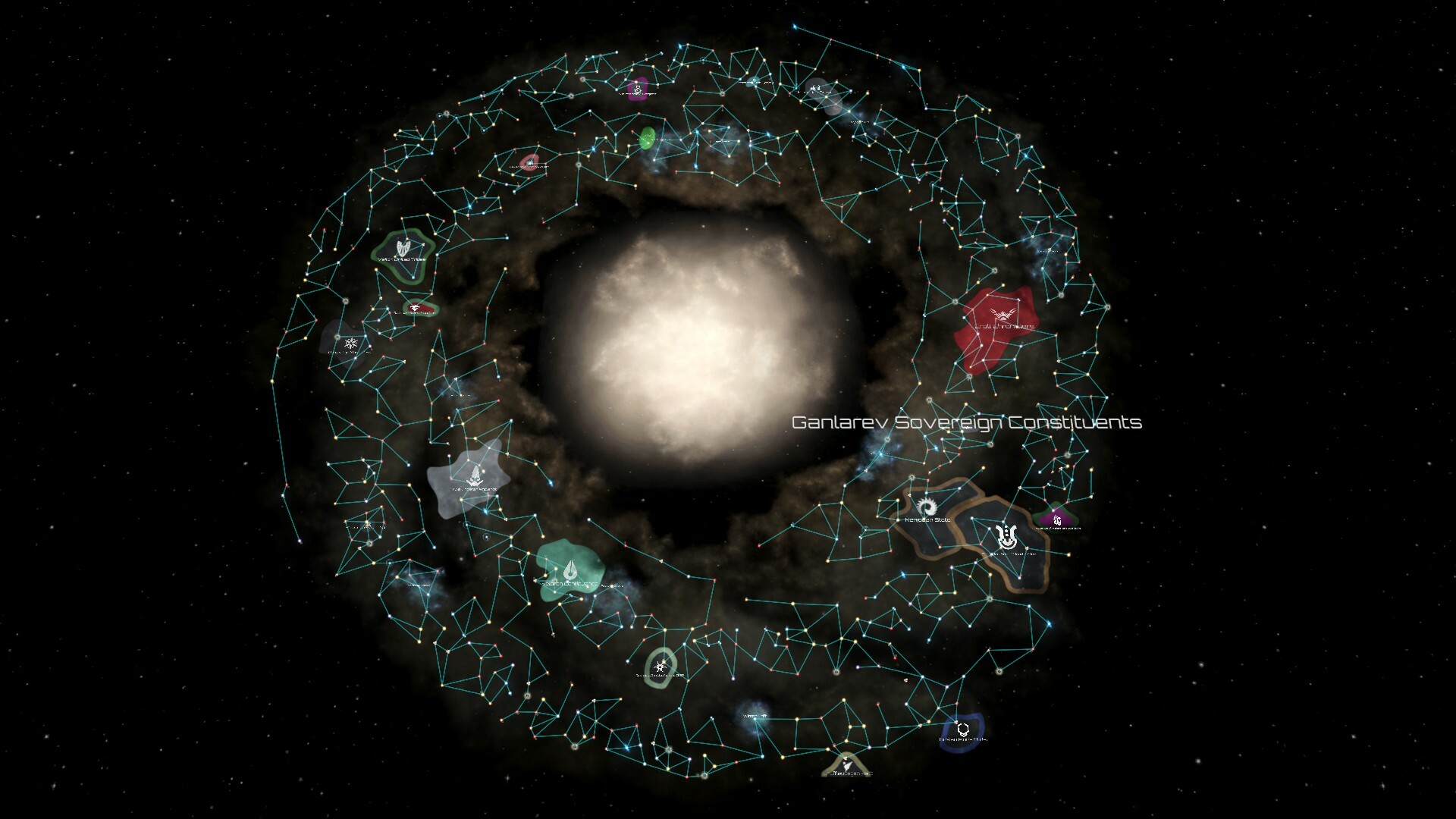
Cartwheel Galaxy
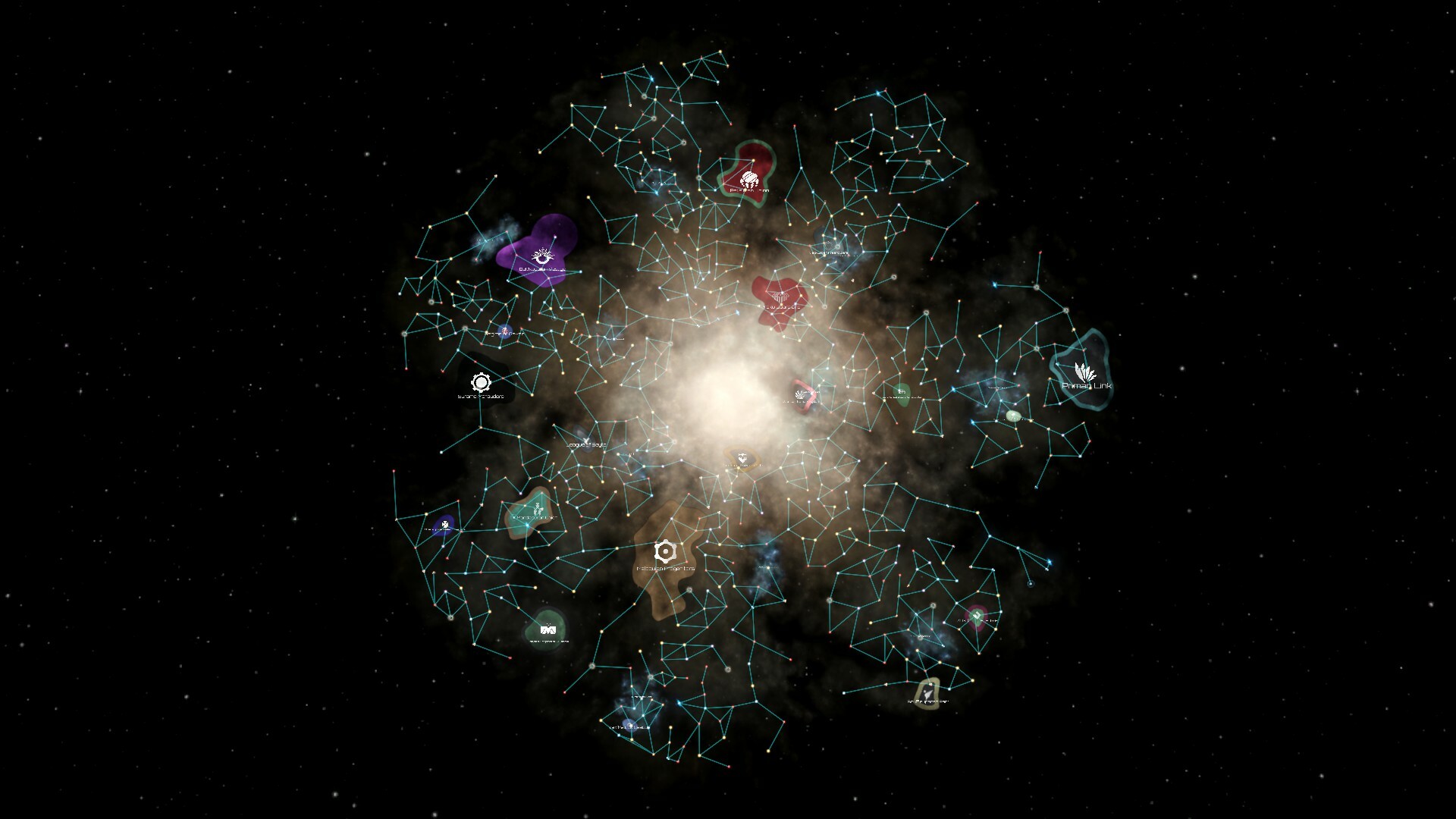
Spoked Galaxy
We hope you enjoy these new galaxy shapes, we find playing on these new maps are a refreshing change, and leads to more interesting gameplay overall.
Reanimators, included in the Necroid Species Pack, has gotten some more love from our Custodian and Art teams!
First off, we have new textures and shaders for Reanimated Leviathans:
Producing these images were some of our biggest internal feedback on the Reanimators Civic, and producing them required the cooperation of each discipline within our art team, with beautiful concept art, new shaders, and breathtaking VFX!
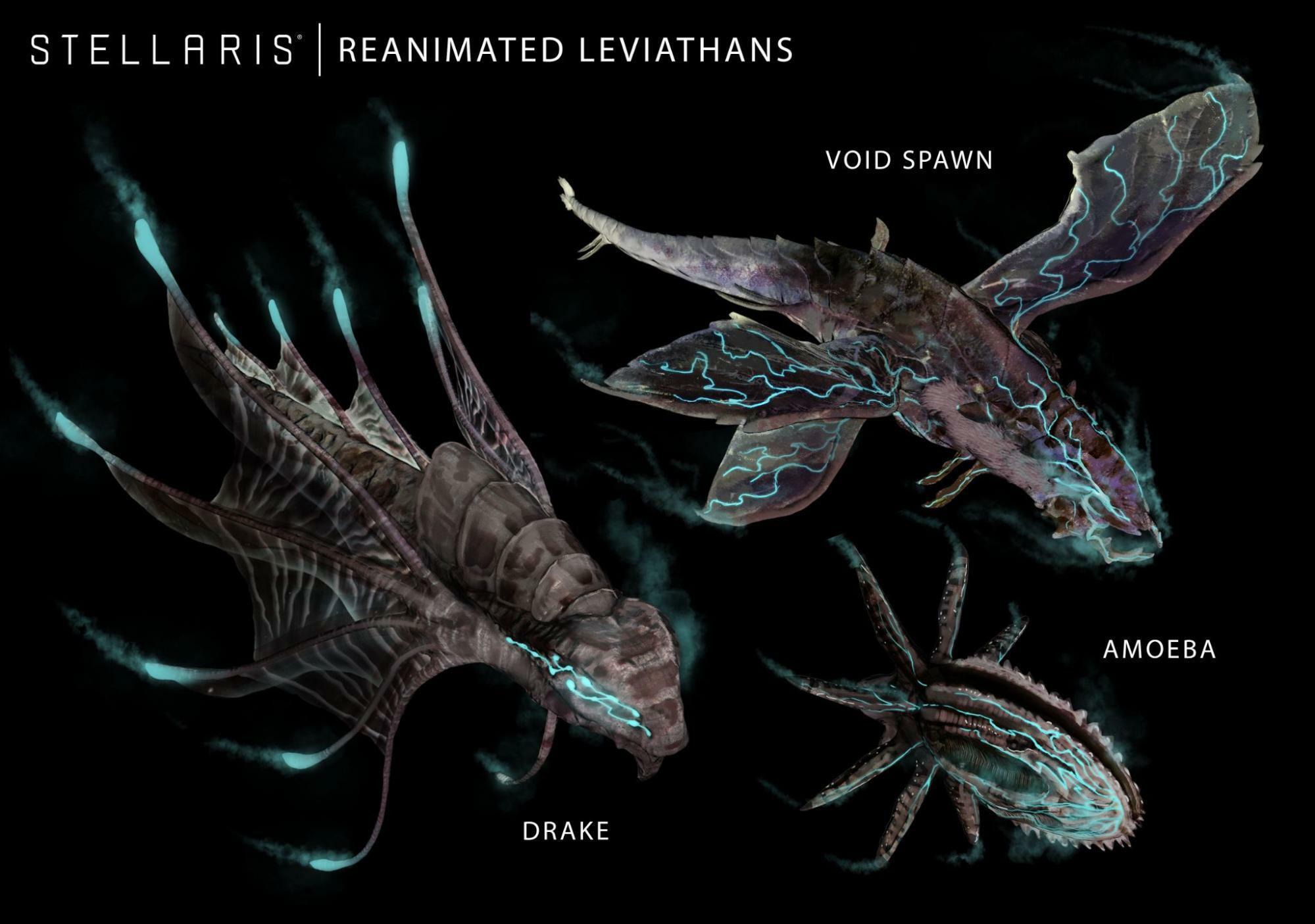
Secondly coming to the Necroids Species Pack, is the Cordyceptic Hives civic. This new Civic requires Necroids and Utopia and is the Hive Mind version of the Reanimators Civic. We weren’t satisfied with simply copying Reanimators for Hive Minds, however. Cordyceptic Hives will start with three reanimated Amoebas in place of their three starting corvettes, and will automatically reanimate organic space fauna that they kill. They will also get a chance to reanimate defeated organic Leviathans and gain an additional +50% to Space Fauna Weapon Damage and Attack Speed.
But, that’s not all! Should you find a system teeming with organic life, such as Tiyana Vek, Tiyun Ort or Amor Alveo, you will be able to construct a special starbase building – the Cordyceptic Reanimation Facility, which will produce a fleet of reanimated space fauna every 5 years.
For a while now we’ve been aware of some issues with fleet combat, mainly that:
- Artillery Battleships dominate the late-game
- Disengagement mechanics favor artillery battleships
- Destroyers and Cruisers have extremely limited uses once the next ship size is unlocked
- Command Limits are ineffective
- Doomstacks aren’t fun
The last two combat issues were deemed out of scope for this rework and may be explored in future updates.
In the Orion update we’ve changed the behavior of most of the combat computers, as well as added a new combat computer. Swarm and Torpedo (New!) computers will charge in, Picket and Line will attempt to stay at the range of your median range weapons, and Artillery and Carrier computers will now attempt to stay at the maximum range of their longest-ranged weapons, and should a ship move closer than that, they will try to maintain that distance from hostile ships.
G slots have been repurposed from Missile slots, and are now used for Torpedos, with Missiles moving to S and M slots. G slots are now only available on Frigates (which we will discuss below) and Cruisers. Proton and Neutron Launchers have been reclassed into Torpedo-type weapons. Torpedo-class weapons also gain a multiplicative damage bonus based on the size of the target. Torpedoes targeting battleships will deal more damage than when targeting corvettes, for example.
We’ve also added more differentiation between the different sizes of weapons, smaller weapons will generally fire faster, and large weapons will generally fire slower, but do more damage. We’ve also added a minimum range to most large-class weapons (except lasers).
Strike craft will no longer intercept missiles, but will continue to fight each other and larger ships. Flak has been changed to more strongly counter strike craft, while point defense has been changed to more strongly counter missiles and torpedoes.
Ships now get a limited number of Disengagement Opportunities per combat. All current drives provide 1 disengagement roll (except for Psi Jump Drives, which provide 2) once the ship takes hull damage below its disengagement threshold, and the Hit and Run war doctrine grants all of your ships an additional attempt. Civilian ships set to evasive will continue to try to disengage with each hit.
We feel this rework adds a breath of fresh air into space combat in Stellaris, and we can’t wait to see what the community-at-large thinks of these new changes!
After all these changes, we’ve also changed up how ship autodesign works in Orion. Where previously, the ship designer would autodesign one “best” ship, there are now different roles of ships you can choose, and the auto designer will choose components that best match the ship role you’ve chosen.
Ship roles:
- Screen – Focuses on Picket Ship sections with armed point defense and flak
- Available to: Corvettes, Destroyers and Defense Platforms
- Gunship – Generally prefers to maximize the number of medium-sized weapons available
- Available to: Corvettes, Destroyers, Cruisers, Battleships, Titans and Defense Platforms
- Artillery – Prefers large, long-ranged weapons and missiles in smaller slots
- Available to: Corvettes, Frigates, Destroyers, Cruisers, Battleships, Titans and Defense Platforms
- Brawler – Gets up close with very short range weapons like autocannons and disruptors
- Available to: Corvettes and Destroyers
- Torpedo – Uses short-ranged torpedoes to destroy larger ships
- Available to: Frigates and Cruisers
- Carrier – hangs back and launches strike craft from maximum engagement range
- Avaiable to: Cruisers, Battleships and Defense Platforms
Learn more about the Fleet Combat Rebalance here:
In 3.6 “Orion”, choosing an Ascension should be more of a gradual process than in previous versions. After unlocking the prerequisites for one of the four ascension paths, you will be able to choose an Ascension Perk that will unlock a special Ascension Tradition Tree.
As you progress through this tree, you will need to complete at least one special project in order to proceed further down the tree, unlocking gradually more powerful bonuses over time, rather than just saving up two ascension perks and magically changing your species into synthetics while the game is paused.
We have made these changes to all of the currently existing ascension paths, Genetic, Synthetic and Psionic, as well as the new Cybernetic tradition tree.
Watch our Ascension Paths Feature Highlight video on YouTube:
In the Orion update, we have split Cybernetics from the Synthetic Ascension Path, and turned it into its own, unique ascension. Available to Regular Empires, Hive Minds and Driven Assimilators for owners of Utopia, Cybernetic Ascension plays into the plug-and-play nature of robotic enhancements in Sci-Fi.
This Ascension Path is unlocked by the Flesh is Weak Ascension Perk (renamed Organo-Machine Interfacing for Driven Assimilators and Hive-Minds). To expand upon Cybernetic Ascension, we have added Cybernetic Traits that are only available to Cybernetic pops, after taking the Integrated Anatomy tradition. These traits make use of normal biological trait point and pick limits, but are not blocked by any biological traits. The traits available to cyborgs are based off of the traits available to robotic species, however they are slightly cheaper in terms of trait points while giving the pops a small amount of energy upkeep.
One of our goals with the Ascension Path rework was to increase the value of those Ascension Paths that seemed lackluster. To that end, we have repurposed the Synthetic Age Ascension Perk – previously the only ascension available to machines, to allow machine intelligences to complete Synthetic Ascension as well. Unlike Synthetic Ascension for regular empires, this does not require Utopia.
While Psionic Ascension has received numerous buffs, the biggest change happens when you breach the shroud for the first time. As part of the Ascension Path changes, we have reworked how forming a Covenant with Shroud entities works, now when you breach the shroud for the first time you will be approached to form a Covenant with a Shroud entity, chosen semi-randomly, but weighted by your ethics, civics, ascension perks, and several other choices you’ve made throughout the game to that point.
If you choose to form the covenant, you will receive a weak modifier from the shroud entity, that will grow more powerful over time, as well as granting various boons and unique components that are only available by forming a Covenant with a shroud entity.
If you choose not to form a covenant, you may be approached later by another shroud entity to form a covenant, or in exchange for Zro you can choose to approach a specific Shroud Entity and attempt to form a Covenant with them directly — beware, however, your chosen Shroud Entity may not be willing to form a Covenant with you at this time and may be very displeased to be interacting with your psychics at all. You have been warned.
Also coming in the Orion update, is a new specialist Federation type, the Holy Covenant. This Federation type is included in the Federations Expansion and plays into the strengths of a Spiritualist Empire. While Machine Intelligence empires are allowed to join Holy Covenants, they are not permitted to become President of the Federation under normal circumstances.
As your new Holy Covenant levels up, you will receive a range of bonuses to unity production, Priest output, and the Spiritualist faction. At the maximum level, these Federations can turn Spiritualist empires into powerhouses, ready to spread the Good Word at a moment’s notice.
In 3.6 “Orion” we have added a number of planetary unique buildings to the Orbital Rings that are included in the Overlord expansion. You can now construct Psi Corps, an Orbital Shield Generator, Galactic Stock Exchange, Embassy Complex, Noble Estates, and a Slave Processing Facility on your orbital ring, and save the valuable building slots on your planets. Most of these buildings have the same effect on the Orbital Ring as they do on the planet’s surface.
The Crystal of Odryskia has been described as an artifact of incalculable wealth. It is said that the value of even a single shard is enough to drive mortal minds to insanity. When found, this artifact will passively increase your Empire’s Rare Crystal production, and when activated will provide up to 60 months of Energy income for your empire, as well as give one of your scientists the Maniacal trait, as long as you’re not a Hive Mind.
We won’t tell you how to find this Relic but guard it carefully if you do find it in your playthrough.
We’ve also added some new accessibility improvements to 3.6 “Orion”. By opening Settings, and going to the Accessibility tab, there’s a new option at the bottom, called Text To Speech. Turning this on will use Windows’ or Mac built-in Text to Speech generator, and adds a new icon to event windows and other places that feature long texts, that will allow you to have the event text read to you.
Important to note that if you’re getting text-to-speech in the wrong language, you need to set up Windows Text-to-Speech voice to your language, and this functionality is not supported by Linux at this time.
Other things to know:
- Pressing the TTS button again will stop the current reading.
- You can open the pause menu(ESC) at any point while TTS is reading text in order to make it stop. This is useful if you’ve already closed the window containing the text and you don’t want TTS to continue reading.
- The voice generation itself is handled by your operating system, which means that there may be cases where things sound sub-optimal, but where we cannot address this by adjusting the system itself.
- Great care should be taken not to feed TTS text pertaining to the individual freedoms of synthetic lifeforms.
We’ve also gone through the First Contact events and added more randomly triggering events to First Contact, we’ve added a new event chain – Negative Mass, and Terraforming Candidates should now appear on the galaxy map.
This is not the full list of changes, you can read the full changelog (in English only) on the Stellaris forums..
Thanks for playing Stellaris, and we hope you enjoy this latest batch of new features and changes!


